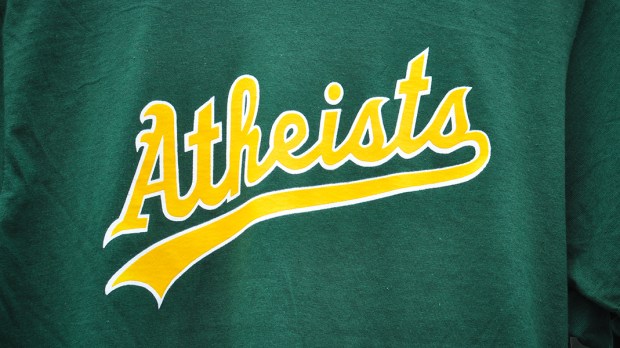He didn’t need to be saved from his sins, he told the Christians who said he did. “As an atheist, I freely accept that I am imperfect and as a human always shall be. I can never attain the status of perfection, I can only get better or worse as the case may be.” He had joined in a Christian web discussion I happened to read the other day, but not to attack them. He just wanted to share.
Most of us have had these talks with unbelieving friends. They might actually bring up the subject themselves. They don’t attack the faith, because they seem to like it as a good thing for others. These friends usually respect it, and us, but claim it’s not for them.
It’s always frustrating to argue with someone who half-agrees with everything you say. It’s like trying to box a big foam pillow. You’ll collapse in exhaustion long before you dent the pillow.
Really chill with the whole thing
These people aren’t like the famous “new atheists” (now the day before yesterday’s news) who go on television and say that people who believe in God are just wrong, and foolish or stupid to boot. They don’t write books with titles like god is Not Great, with “God” intentionally printed with a lower-case “g.” They may call themselves atheists, but they’re really chill about the whole thing, as my children used to say. We might call them soft atheists.
The Christian says, “There’s something wrong with us and we need help.” This kind of non-believer says, “There’s something wrong with us, but that’s okay.” The Christian may tell him that he really needs help, and he will only say “Thanks for the offer, but I’m doing as well as can be expected.” He half agrees, which saves him from having to think about what you’ve said.
The soft atheists baffle me. I grew up with a mixture of generic Protestant and secular leftist moralism. We were always failing somehow. Being unkind to others, failing to resist the system, we always knew we failed to reach the ideal. We felt our sins in our bones. When I first heard an aggressive evangelist say that Jesus saves us from our sins, I didn’t believe it, but I could see that if it were true it was good news.
But these people, they don’t seem to feel their sins at all. They act as if they’re a slow runner pushed into running the 400 meter dash at the Olympics. It’s not their fault they finish three minutes behind everyone else. They did their best. They’re just not runners, okay?
Come and see
Catholics have a huge apologetics industry producing tools for every job. But with soft atheists, and there are a lot of them around, apologetics doesn’t work. Arguing well for the Faith doesn’t do much good, because the person you’re talking to doesn’t exactly disagree with you. He is insulated from argument and protected from challenge.
With a friend like this, you have to say as Philip said to Nathaniel in the Gospel of John, “Come and see.” He doesn’t know what he needs, and won’t admit that he needs anything. The only thing he’ll notice is a better offer.
The better offer is what the Catholic Church offers him. He may be happy with vanilla, until he discovers heavenly hash. He may like riding his bike, until he gets the Harley.
He may really believe that he accepts his imperfection, for example. But he will also sometimes feel guilty about something he’s done. He’ll feel guilty in a way that simply saying “Everyone’s imperfect” can’t heal. He’ll have hurt someone in a way he can’t shrug off.
He may sense the need for forgiveness by Someone who can finally and completely forgive him, and not only forgive him but help him to change. He may, in other words, sense his need for God. That is the better offer he will find in the Church.
Not everyone will feel this need for forgiveness, but I suspect almost everyone will feel some need for something the Church will give them, something they cannot get anywhere else. For some it may be a deeper explanation of why the world is the way it is and for others a deep and comprehensive philosophy that helps them think about the world. For others it may be a sense of beauty and order they miss in their own lives.
And for others, perhaps for almost everyone, it is a vision of holiness that shines clearly in the middle of the dingy and dull mediocrity of accepted imperfection. In the Church, they’ll see lots of people like themselves, but they’ll also see saints and would-be saints. They’ll see something clean and shining, and then see how dingy and dull they are.

